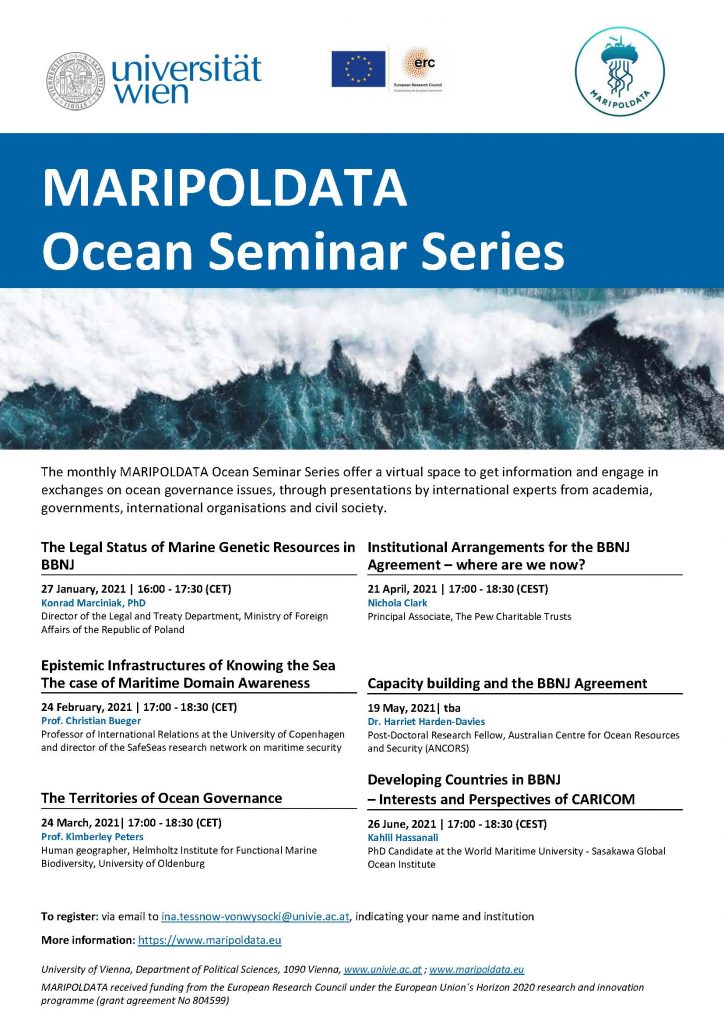What the root causes of maritime piracy are and how they can be addressed through external assistance remains one of the most pertinent questions of maritime security policy. This was the core problem that we addressed in a recent SafeSeas webinar.
The event centered around the recently published book “Piratelands. Governance and Maritime Piracy” by Ursula Daxecker and Brandon Prins (Oxford University Press). In addition to the authors, four commentators contributed to the debate: Stig Jarle Hansen, Anja Shortland, Jessica Larsen, and myself.
In my contribution, I stressed the importance of thinking local and paying more attention to the sub-national level of root causes, the need to better understand the inter-linkages of blue crimes, as well as working towards predictive models that can tell us what to do now to prevent the rise of the pirates of tomorrow.
A video recording of the event is available on the SafeSeas Youtube Channel. Follow the channel for future events.

